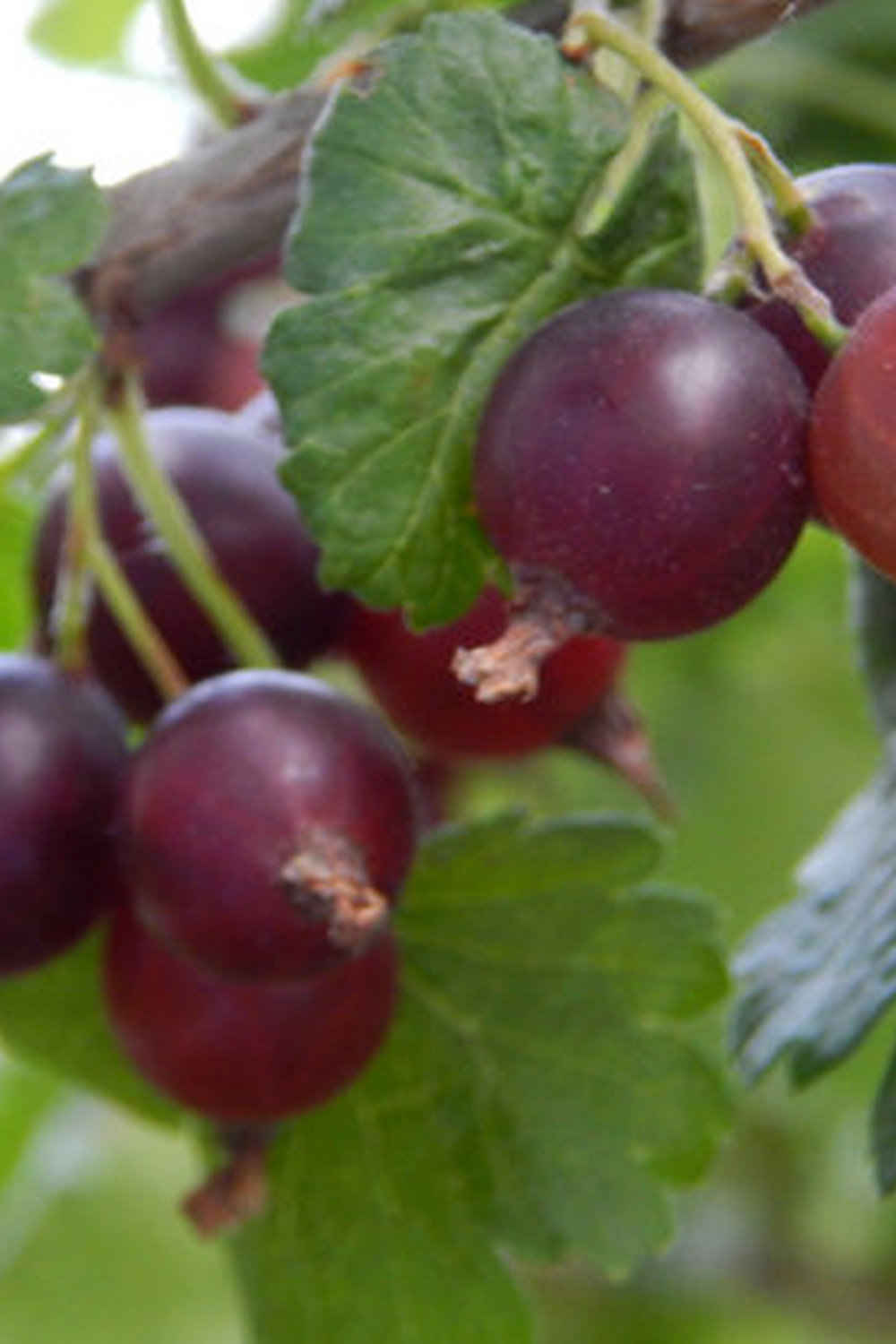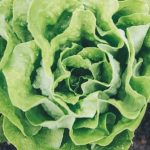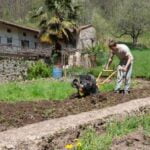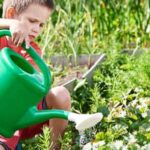Organic gardening is becoming increasingly popular as people become more aware of the potential harms of chemical-based gardening practices. One important aspect of organic gardening is understanding how to properly water vegetable plants.
In this article, we will explore the question: “Is tap water ok to water vegetable plants?” By delving into the impact of tap water on vegetable plants, the chemical composition of tap water, and alternatives to tap water, we hope to provide valuable insights for organic gardeners.
When it comes to organic gardening, ensuring that your vegetable plants receive the right amount and type of water is crucial for their growth and overall health. In this section, we will discuss the basics of organic gardening and why proper watering is so important for vegetable plants.
We will also take a closer look at the different factors that can affect the use of tap water in organic gardens, including its potential impact on soil health and plant growth. With a focus on understanding the fundamentals of organic gardening, readers will gain valuable knowledge about maintaining a healthy garden while minimizing environmental impact.
The Impact of Tap Water on Vegetable Plants
When it comes to organic gardening, one of the key considerations is the impact of tap water on vegetable plants. Many gardeners rely on tap water as their primary source of irrigation, but it’s essential to understand the potential effects that tap water can have on organic vegetable gardens.
The chemical composition of tap water can vary depending on the location and source. It often contains chlorine, fluoride, and other additives that are intended to make it safe for human consumption. However, these chemicals can also have negative effects on plant health, especially in organic gardens where the focus is on natural and chemical-free practices.
To mitigate the potential impact of tap water on vegetable plants in organic gardens, there are several alternatives that gardeners can consider:
- Rainwater harvesting: Collecting rainwater in barrels or containers provides a natural and chemical-free source of water for vegetable plants.
- Filtered water: Using a filtration system to remove impurities from tap water can make it safer for watering organic gardens.
- Well water: If available, well water can be a good alternative to tap water for irrigating vegetable plants in organic gardens.
It’s important for gardeners practicing organic gardening to consider the potential impact of tap water on their vegetable plants and explore alternative sources of irrigation to maintain the integrity of their organic practices. By being mindful of the composition of the water used in their gardens, they can ensure that their vegetable plants thrive in a healthy and natural environment.
The Chemical Composition of Tap Water
When it comes to watering your vegetable plants in an organic garden, the type of water you use can have a significant impact on their overall health and productivity. Tap water, which is commonly used for watering plants, may contain various chemicals and substances that can potentially affect the growth and development of vegetable plants. It is important to understand the chemical composition of tap water and its potential impact on your organic garden.
The chemical composition of tap water can vary depending on the source and treatment processes used by local water utilities. Some common substances found in tap water include chlorine, fluoride, lead, and various mineral salts. While these substances are generally considered safe for human consumption within certain limits, they can have different effects on vegetable plants when used for watering.
- Chlorine: Chlorine is often added to tap water as a disinfectant to kill harmful microbes. However, high levels of chlorine can be detrimental to soil microorganisms and beneficial bacteria in the organic garden.
- Fluoride: Fluoride is another chemical added to tap water for dental health purposes. While it may not directly harm vegetable plants, excessive fluoride levels can accumulate in the soil over time.
- Lead: In some cases, old plumbing systems may leach lead into tap water. Lead contamination can significantly harm the growth and development of vegetable plants.
To minimize the potential impact of tap water on your vegetable plants in an organic garden, consider exploring alternative water sources such as rainwater or filtered water. Harvesting rainwater through a collection system or using a filtration system to remove contaminants from tap water can provide a safer and healthier option for watering your precious vegetable plants.
Alternatives to Tap Water
Rainwater Collection
Collecting rainwater can be a beneficial alternative to using tap water in organic vegetable gardens. Rainwater is free of chemicals, making it a natural and eco-friendly option for watering plants. Additionally, rainwater often contains essential nutrients that can benefit vegetable plants, providing them with a nutrient boost as they grow. Setting up a rain barrel or collection system can be a simple and effective way to utilize this alternative water source.
Filtered Water Systems
Filtered water systems can also provide an alternative to tap water for watering vegetable plants in organic gardens. These systems remove contaminants and chemicals from the water, ensuring that the plants are not exposed to harmful substances. Using filtered water can help maintain the integrity of organic gardening practices and contribute to healthier soil and crops.
Sustainable Water Conservation
In addition to rainwater collection and filtered water systems, sustainable water conservation practices can also support organic gardening principles. Implementing efficient irrigation methods such as drip irrigation or soaker hoses can help minimize water usage while still meeting the needs of vegetable plants. By utilizing these alternative water sources and conservation techniques, organic gardeners can ensure that their vegetable plants receive the best quality water for optimal growth and health.
Overall, exploring alternative water sources for organic vegetable gardens is crucial in maintaining the integrity of organic gardening practices and promoting sustainability. Whether through rainwater collection, filtered water systems, or sustainable conservation methods, gardeners can make informed choices about the water they use to nurture their vegetable plants. By considering these alternatives, they can support healthy soil, crops, and ecosystems while reducing the potential impact of tap water on their organic gardens.
Tips for Using Tap Water Safely
When it comes to organic gardening, the use of tap water to irrigate vegetable plants is a common concern for many gardeners. While tap water is readily available and convenient, it may contain chemicals and substances that can potentially impact the health of vegetable plants and soil in organic gardens. However, with some careful consideration and proper guidelines, tap water can be used safely to water vegetable plants in organic gardens.
Understanding the Potential Impact
Tap water can contain chlorine, fluoride, and other chemicals that may have an adverse effect on vegetable plants in organic gardens. Chlorine, commonly used as a disinfectant in municipal water supplies, can harm beneficial microorganisms in the soil. Additionally, fluoride, when present in high concentrations, can build up in the soil and affect plant growth. Understanding these potential impacts is crucial for implementing safe watering practices.
Filtering Tap Water
One way to mitigate the potential negative effects of tap water on vegetable plants in organic gardens is by using a filter to remove chlorine and other contaminants. Investing in a quality water filtration system or using a simple carbon filter can help reduce harmful chemicals present in tap water. Filtered tap water can provide a more suitable irrigation option for organic vegetable plants by eliminating or reducing the presence of harmful substances.
Monitoring Soil Health
In addition to filtering tap water, maintaining healthy soil is essential for ensuring that vegetable plants thrive in an organic garden. Regularly testing soil pH levels and nutrient content can help identify any imbalances that may be exacerbated by tap water irrigation. By monitoring soil health and making necessary adjustments, gardeners can create an environment that supports the growth of healthy and vibrant vegetable plants even when using tap water for irrigation.
Overall, while there are potential concerns with using tap water for watering vegetable plants in organic gardens, it is possible to do so safely by understanding its impact, filtering it effectively, and closely monitoring soil health. By following these tips and guidelines, gardeners can ensure that their organic gardening practices promote the well-being of both their vegetable plants and the surrounding environment.
Organic Gardening Practices
Organic gardening is a method of growing plants without the use of synthetic fertilizers, pesticides, or genetically modified organisms. The principles of organic gardening emphasize soil health, biodiversity, and ecological balance. When it comes to watering vegetable plants in organic gardens, the focus is on using natural and sustainable methods that support the overall health of the plants and the surrounding environment.
In organic gardening, water usage is carefully managed to ensure that plants receive adequate moisture without wasting water or causing harm to the ecosystem. This includes utilizing irrigation systems that deliver water directly to the roots of the plants, mulching to retain soil moisture, and selecting drought-resistant plant varieties. By prioritizing water conservation and efficiency, organic gardeners can reduce their environmental impact while promoting healthy growth in their vegetable plants.
Additionally, organic gardening practices often involve capturing and storing rainwater for use in watering vegetable gardens. Rainwater is free from chlorine and other chemicals found in tap water, making it an ideal choice for nourishing organic crops. By incorporating rainwater harvesting into their gardening routine, individuals can further align with the principles of sustainability and self-sufficiency that are central to organic gardening.
| Principles of Organic Gardening | Water Usage in Organic Gardens |
|---|---|
| Emphasizes soil health, biodiversity, and ecological balance | Managed carefully to ensure plant health and environmental sustainability |
| Prioritizes natural and sustainable watering methods | Focuses on water conservation and efficiency |
| Involves capturing and storing rainwater for watering crops | Promotes sustainability and self-sufficiency |
The Importance of Soil Health
Organic gardening emphasizes the importance of soil health in cultivating thriving vegetable plants. Soil is not just a medium for plant growth; it is a complex ecosystem of living organisms, organic matter, minerals, and water. In organic gardening, maintaining and improving soil health is fundamental to the success of the garden. This section will explore the significance of soil health in organic gardening and its relationship to watering vegetable plants.
Healthy soil provides essential nutrients to vegetable plants, supports root development, and helps retain moisture. The organic matter in the soil acts as a sponge, holding water that can be accessed by plant roots. When soil is healthy and well-structured, it allows for proper drainage while retaining adequate moisture for plant growth. This means that properly managed soil requires less frequent watering, reducing the need for excessive irrigation.
In addition to providing nutrients and water to plants, healthy soil also plays a crucial role in disease prevention and pest control. A balanced ecosystem within the soil helps create a natural defense system against common garden pests and diseases. Therefore, when cultivating an organic vegetable garden, it is essential to prioritize soil health as a means of promoting overall plant vitality.
| Benefits of Healthy Soil | Importance |
|---|---|
| Provides essential nutrients to vegetable plants | Supports root development |
| Aids in retaining moisture | Contributes to disease prevention and pest control |
Conclusion
In conclusion, the debate over whether tap water is suitable for watering vegetable plants in organic gardens is a complex and multifaceted issue. While tap water may contain certain chemicals and substances that could potentially impact the health of vegetable plants, there are ways to use it safely in organic gardening practices.
Understanding the chemical composition of tap water and its potential effects on soil health and plant growth is essential for making informed decisions about watering methods in organic gardens.
One recommendation for using tap water in organic gardening is to consider implementing a filtration system to remove any harmful substances before using it to water vegetable plants. Additionally, collecting and utilizing rainwater can serve as an alternative source of irrigation for organic gardens, reducing the reliance on tap water.
Balancing the use of tap water with other sources such as filtered or rainwater can help maintain soil health and promote robust growth in vegetable plants within an organic gardening framework.
Overall, while tap water may pose challenges for organic gardeners, it is possible to navigate these issues by understanding the composition of tap water, exploring alternative sources, and implementing strategies for safe usage. By prioritizing soil health and making informed choices about watering methods, organic gardeners can ensure the vitality and success of their vegetable plants while adhering to the principles of organic gardening.
It is crucial to approach watering practices in organic gardens with mindfulness and consideration for sustainability and environmental impact.
Frequently Asked Questions
Can You Use Tap Water for Vegetable Garden?
Using tap water for a vegetable garden can be okay, but it depends on the quality of your tap water. Some tap water contains high levels of chlorine and other chemicals that may not be ideal for vegetable plants.
What Is the Best Water for Organic Gardening?
The best water for organic gardening is ideally rainwater or filtered water. Rainwater is free from chemicals, minerals, and additives often found in tap water, making it the perfect choice for organic gardening.
Is Tap Water OK for Tomato Plants?
Tap water can be okay for tomato plants, but again, it depends on the quality of your tap water. Tomatoes are susceptible to diseases caused by contaminated water, so if you’re using tap water, it’s essential to monitor its quality and potentially consider using filtered or rainwater instead.

If you’re looking to get into vegetable gardening, or are just looking for some tips on how to make your current garden better, then you’ve come to the right place! My name is Ethel and I have been gardening for years. In this blog, I’m going to share with you some of my best tips on how to create a successful vegetable garden.





